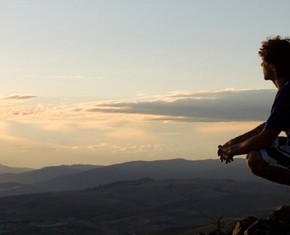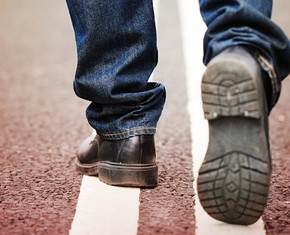The views expressed in our content reflect individual perspectives and do not represent the authoritative views of the Baha'i Faith.
The incomparable Creator hath created all men from one same substance, and hath exalted their reality above the rest of His creatures. Success or failure, gain or loss, must, therefore, depend upon man’s own exertions. The more he striveth, the greater will be his progress. – Baha’u’llah, Gleanings from the Writings of Baha’u’llah, pp. 81-82.
…qualities of the spirit are the basic and divine foundation, and adorn the true essence of man; and knowledge is the cause of human progress. The beloved of God must attach great importance to this matter, and carry it forward with enthusiasm and zeal. – Abdu’l-Baha, Selections from the Writings of Abdu’l-Baha, p. 137.
Does human civilization grow, mature and develop—or do we remain stagnant? When we look back at history, can we truly say the human race has progressed? Lots of historians and philosophers have asked those questions lately, and some astute observers, who focus on the negative consequences of our material advancement, have even concluded that collective human progress is an illusion and a myth.
But it’s much harder to deny that individual progress exists, because every child who has gone to school knows how it feels to make progress.
Remember that day in math class when you suddenly understood a fraction or an equation or the rules of geometry? You did your homework, listened carefully to the teacher, puzzled over the concepts; and then one day the new knowledge dawned, something clicked, and all that thinking you’d done finally came to fruition. Your mind had grown, and you now knew something you hadn’t known before.
That’s progress. Your understanding moves forward along a continuum, and you improve, advance, develop. Your intellect now grasps what it once failed to understand. You become a new and more knowledgeable being. The same thing happens when your mind and soul learn a fresh spiritual lesson or develop a new inner attribute.
The Baha’i teachings say that kind of inner progress ultimately comes from a divine power:
…man must throughout all the degrees of life evolve and progress day unto day, for life is continuous. The manifestors of divine law have appeared so that they may confer upon man an ideal power which will enable him to advance along all the degrees of human attainment. The power of the world of existence is limited, while the power of God is unlimited. If the reality of man should not be confirmed by a divine power human progress would terminate. – Abdu’l-Baha, Divine Philosophy, p. 125.
So how do you make spiritual progress as an individual? What tactics and techniques can you use to grow, develop and progress in a spiritual way?
The Baha’i teachings recommend a daily spiritual practice that includes five specific steps: meditation, reflection, prayer, reading and action. For Baha’is, making spiritual progress starts with meditation:
Through the faculty of meditation man attains to eternal life; through it he receives the breath of the Holy Spirit — the bestowal of the Spirit is given in reflection and meditation.
The spirit of man is itself informed and strengthened during meditation; through it affairs of which man knew nothing are unfolded before his view. Through it he receives Divine inspiration, through it he receives heavenly food.
Meditation is the key for opening the doors of mysteries. – Abdu’l-Baha, Paris Talks, p. 175.
When you begin a regular practice of meditation, the Baha’i writings say, “the doors of mysteries” will gradually start to open. Those doors of insight and reflection reveal the world of the spirit:
I wish you to live in the world of the Spirit—to see the Divine Reality in everything—to behold the illumination of the world of the Kingdom beyond and within the gloomy mask of this mortal existence. For the world of the Kingdom is a world of Lights, a world of happiness, a world of accomplishment, the real and eternal world. – Abdu’l-Baha, Star of the West, Volume 3, p. 222.
Once the world of the spirit opens itself to you through meditation and reflection, prayer and reading from the world’s sacred scriptures can deepen and enlarge your soul:
It is easy to read the Holy Scriptures, but it is only with a clean heart and a pure mind that one may understand their true meaning. Let us ask God’s help to enable us to understand the Holy Books. Let us pray for eyes to see and ears to hear, and for hearts that long for peace. – Abdu’l-Baha, Paris Talks, p. 57.
The state of prayer is the best of conditions, for man is then associating with God. Prayer verily bestoweth life… – Abdu’l-Baha, Selections from the Writings of Abdu’l-Baha, p. 201.
These inner-directed, individualized and intense experiences all work together to produce self-knowledge, self-awareness and a selfless desire to help others. At that point, the Baha’i teachings recommend action—the conscious kindness of actually doing something for someone. No spiritual practice means much without it:
If we are true Baha’is speech is not needed. Our actions will help in the world, will spread civilization, will help the progress of science, and cause the arts to develop. Without action nothing in the material world can be accomplished, neither can words unaided advance a man in the spiritual Kingdom. It is not through lip-service only that the elect of God have attained to holiness, but by patient lives of active service they have brought light into the world.
Therefore strive that your actions day by day may be beautiful prayers. Turn towards God, and seek always to do that which is right and noble. Enrich the poor, raise the fallen, comfort the sorrowful, bring healing to the sick, reassure the fearful, rescue the oppressed, bring hope to the hopeless, shelter the destitute! – Abdu’l-Baha, Paris Talks, pp. 80-81.
Only “patient lives of active service,” the Baha’i teachings say, will bring the light of love into the world.
You May Also Like
Comments

















When we pray, we are asking God for something.
When we read the Writings, God is asking us to do something.
Prayer and read the Writings is like a two-way conversation between man and God.
It would seem to me, that after having such a conversation, that it would be prudent to meditate upon it. Then reflect upon what your soul has gleaned or received through that meditation. ...And finally to act upon that which you have gleaned.
Does this make sense to anyone?